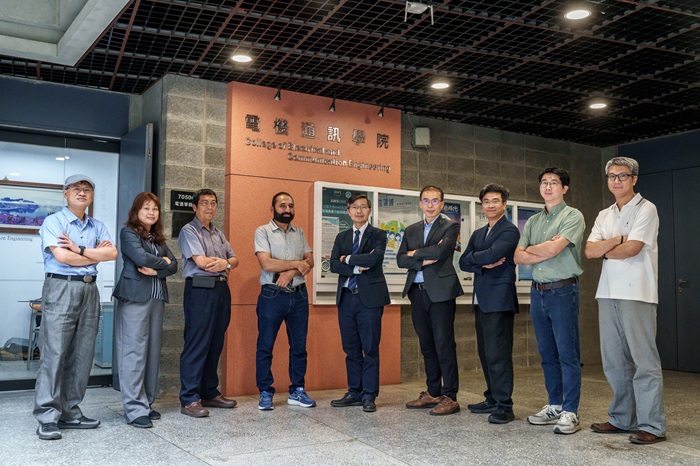The College of Electrical and Communication Engineering at Yuan Ze University once again achieved outstanding results in the 2025 global rankings released by the international academic evaluation platform, ScholarGPS. A total of 14 professors were recognized among the world’s top scholars, with three ranked in the top 1% and eleven in the top 5%, demonstrating exceptional research capabilities and far-reaching international influence.
ScholarGPS, a globally authoritative academic data platform, evaluated scholars based on multiple indicators, including publication output, journal impact, citation frequency, and multi-year contributions. The platform tracked over two million scholars worldwide. Being ranked in the top 1% or 5% signified that a scholar’s research achievements held high reference value and practical application in both academia and industry.
Dean Dun-Yu Chen of the College of Electrical and Communication Engineering stated that this achievement reflected the long-term dedication of faculty and students to the college’s three major research pillars: “Smart Sensing,” “Next-Generation Communications,” and “Green Energy Semiconductors.” He emphasized that the college would continue to deepen interdisciplinary collaboration and expand global academic and industrial connections.
Among those ranked in the global top 1%, Chih-Min Lin, Dun-Yu Chen, and Mohammad Shoaib stood out prominently. Professor Lin was the first scholar from a private university in Taiwan to be named an IEEE Fellow. He had received the National Science and Technology Council’s Outstanding Research Award three times and the Ministry of Education’s Academic Award. His contributions to image and multimedia communications led to the successful commercialization of multiple technologies.
Professor Chen excelled in computer vision, sports technology, and telemedicine. He led a research team that developed high-efficiency, low-power AI models successfully applied in national defense and healthcare. His work on “deep model distillation and edge computing” earned him the 2025 Academic Industrialization Award.
Professor Shoaib, from the fields of engineering and biomedical sciences, had been listed among Stanford University’s top 2% of global scientists for three consecutive years. Over the past five years, he published more than 50 papers in top-tier international journals (top 1% to 5%) and actively promoted English-medium instruction and international joint laboratory collaborations.
The professors ranked in the global top 5% spanned diverse fields such as AI in healthcare, next-generation communications, semiconductors, and optoelectronic materials. These included Cheng-Hung Lin, Huang-Chia Shih, Tai-Yuan Su, Wen-Hsing Kuo, Cheng-Kuang Huang, Cheng-Nan Chiu, Wei-Sheng Liu, Chih-Hao Chang, Fang-Yi Lai, Nien-Wen Pu, and Tien-Lung Chiu. Their research covered a wide range of innovations, from mobile retinal screening and thermal imaging for dry eye detection to UAV transmission, 6G micro-cell management, blue-light LEDs, quantum nanomaterials for energy storage, and flexible OLEDs—showcasing the college’s robust interdisciplinary innovation capacity.
Dean Chen further noted that the college had actively promoted a three-stage innovation model in recent years: “Academic Deepening, Technological Validation, and Industrial Implementation.” This model aimed to build a comprehensive industry-academia collaboration platform and strengthen the transformation of technological applications. The college had already successfully introduced several cutting-edge technologies into key national industries such as defense security, smart healthcare, advanced communications, and green energy generation—demonstrating how solid research outcomes could become a driving force for Taiwan’s industrial advancement.
Looking ahead, the college planned to continue focusing on four major areas: artificial intelligence, information and communication technology, electric power and energy, and semiconductor materials. It would integrate three major professional platforms—the Communication Center, the Artificial Intelligence Center, and the Semiconductor Center—to comprehensively enhance the industrialization of academic achievements and the international cultivation of talent. In doing so, the college aimed to fulfill its role as a leader in technological innovation and social sustainability in higher education.


 繁
繁